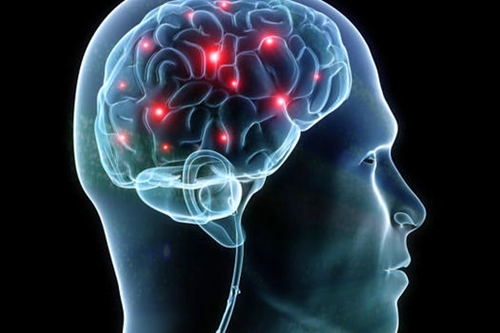
(Allan Ajifo, Wikimedia Commons)
11 February 2016. A collaboration of three organizations and companies in the U.S. and Germany is building an authoritative and systematic collection of research on post-traumatic stress disorder or PTSD. The PTSD KnowledgeMap, as it’s called, is a project of Cohen Veterans Bioscience, Exaptive Inc,. and Fraunhofer Institute for Algorithms and Scientific Computing, and will be made available to the research community worldwide.
People who experience or witness a terrifying event can experience nightmares or flashbacks for periods of time after the event, which can subside with counseling or help from family and friends. For some people, however, the reminders continue and can develop into PTSD, marked by anxiety or depression, often with debilitating effects on their families, jobs, and personal relationships. Anxiety and Depression Association of America says some 7.7 million Americans age 18 and older have PTSD, including two-thirds of people experiencing mass violence, such as members of the military.
The PTSD KnowledgeMap aims to create the first useful repository of PTSD research for scientists and policy makers. Cohen Veterans Bioscience, a not-for-profit organization in Cambridge, Massachusetts is the project’s lead funder. The organization says in the past 35 years, some 100,000 scientific journal articles were published on PTSD, but no easy way exists for interested parties to make sense of the findings. Nonetheless, this body of work serves as the basis for current and future research.
The KnowledgeMap is expected to pull together studies of PTSD symptoms, biomarkers, genetic variations, and epidemiological studies, among others. The partners in the project aim to provide interactive search features to ease access to the collected findings, as well as establish a process for adding new studies to the collection. “Many research endeavors overlap,” says Magali Haas, president of Cohen Veterans Bioscience, in a company statement. “Our goal is to centralize information and produce a blueprint for global PTSD research. ”
Cohen Veterans Bioscience is a public-private network of parties interested in brain disorders affecting veterans, particularly traumatic brain injury and PTSD. The organization collects data on biomarkers, clinical outcomes, and environmental influences, and applies big-data analytics to allow computer simulations to answer questions about causes of these disorders, as well as prevention, new treatments, and populations at risk.
Exaptive Inc., in Oklahoma City, will create data mining tools for the PTSD KnowledgeBase. The company develops software that can quickly produce insights from big-data collections. Dave King, Exaptive’s founder and CEO notes, “Without the ability to quickly and easily navigate data, the information remains largely unusable,” adding “just amassing data will not by itself lead to insight.”
Fraunhofer Institute for Algorithms and Scientific Computing in Sankt Augustin, Germany will design the computational information retrieval system in the PTSD KnowledgeBase. The institute, which uses the initials SCAI, studies computer simulations for product and process development, drawing on its experience in industrial engineering, applied mathematics, and information technology. SCAI’s bioinformatics team recently generated a large-scale research model on Alzheimer’s disease.
Cohen Veterans Bioscience says the interaction exploration tool should be available later in 2016. The organization also plans to share with researchers worldwide the computer model and software for mining the knowledge map.
Read more:
- Chip Designed for Efficient, Mobile Neural Networks
- Yahoo Releases User Interaction Data for Machine Learning
- Cancer Genome Data Visualization Tool Developed
- Detailed Brain Activity Imaging Being Developed
- Computer Model Devised to Predict Drug Side Effects
* * *

 RSS - Posts
RSS - Posts
You must be logged in to post a comment.